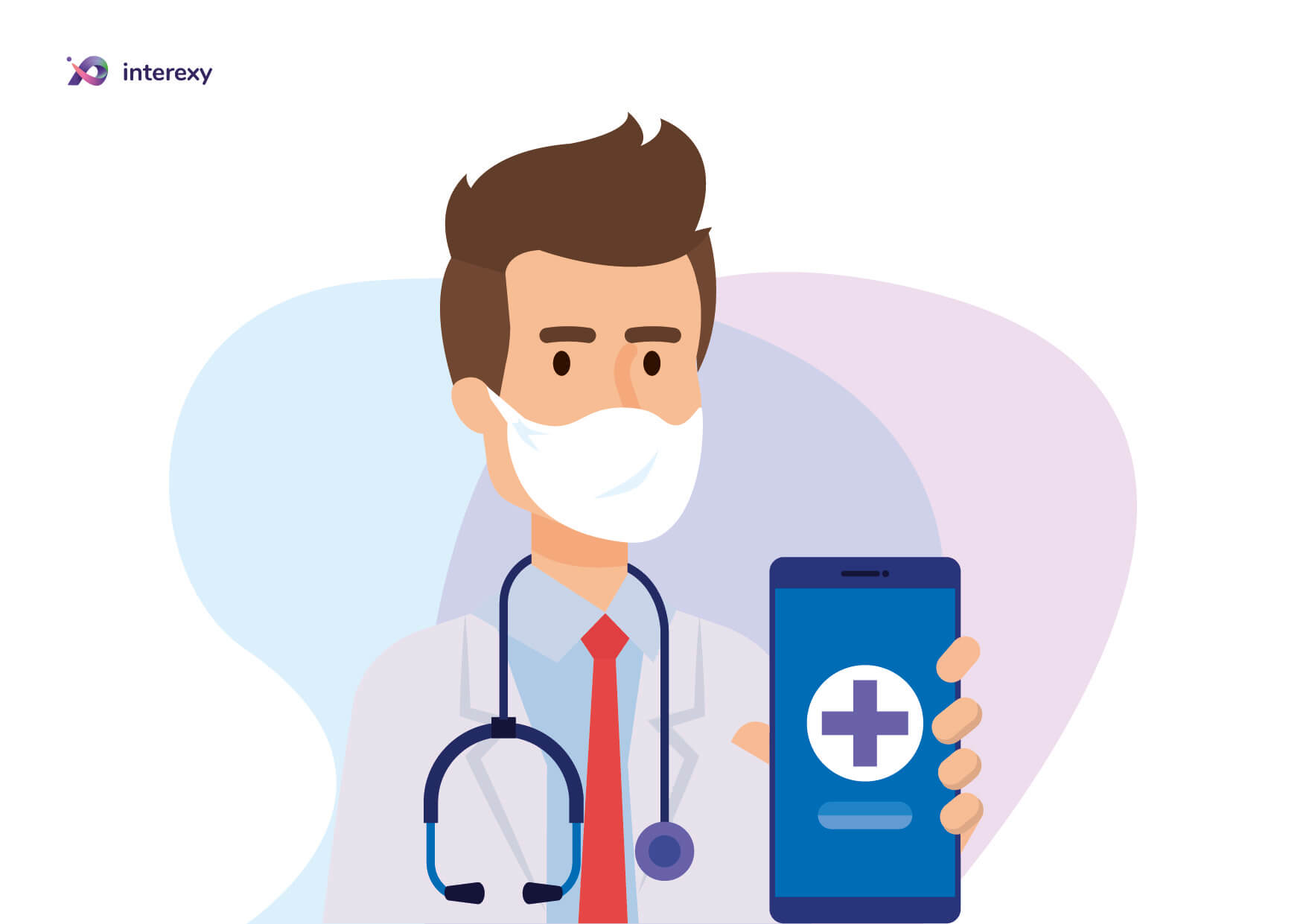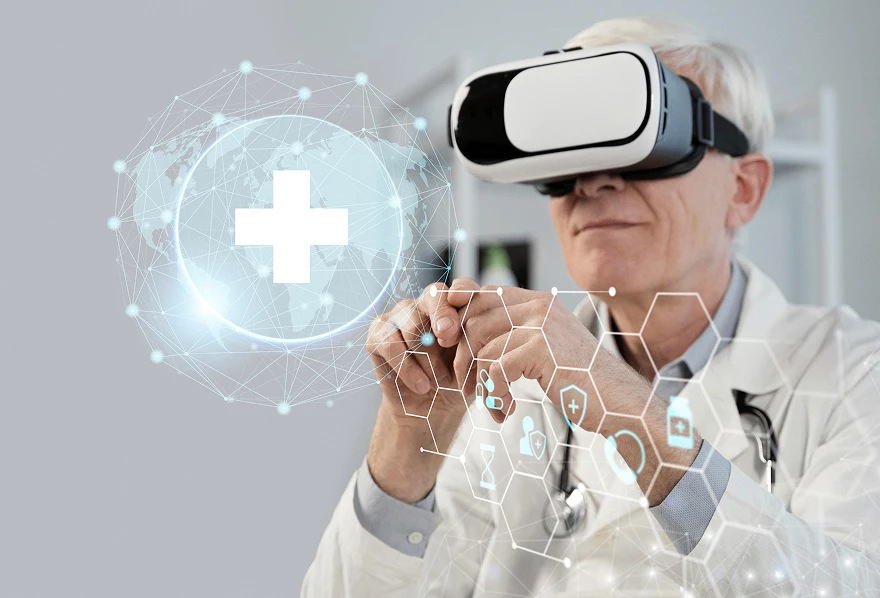September 14, 2021
How Are Mobile Applications Transforming the Healthcare Industry? Find Out It With Interexy
Table of content
- Digital Healthcare Market Overview
- The Benefits of Mobile Technology Implementation for Healthcare Industry
- 5 ways how mobile apps are transforming the healthcare industry
- Technologies That Help Mobile Application Transform the Healthcare and Medical Industry
- Consider Interexy Your Trusted Partner
- Final thoughts
Technology is taking the world by storm, providing our life with modern solutions in almost every sphere we live and work in. Our transport is changing, allowing people to effortlessly drive a car or sleep in it with an auto vehicle. Our phones have become more innovative, offering targeted advertising and vital products that we have been thinking of. Technology not only can bring joy and ease to a daily routine, but it can also almost save our life in case of unpredicted situations. In this article, we are going to unlock the full impact of mobile technologies on the healthcare industry.
According to Statista.com, as of July 18, 191, 230, 672 active cases have been identified by doctors. And this astonishing number is only for coronavirus, but there are many other severe health conditions that kill millions of people every day and in every corner of the world. Due to such demand for medicine, the role of mobile apps in healthcare industry
became significant. They allow patients monitoring physical activity, prevent worsen disease if any symptoms occur, and improve overall well-being by counting daily water and supplement intake.
Mobile medical apps for both the medical staff that improves healthcare time management, and for patients are changing healthcare technology industry with the latest technological advancement and interference. Only in recent years, we are able to understand the role mobile solutions have played in the transformation of the medical sector.
Since many people started investing in the healthcare apps development, we at Interexy, created a team of niche-down experts that can bring the difference in the medical app development. Do not hesitate to contact us and start building your brand-new product!
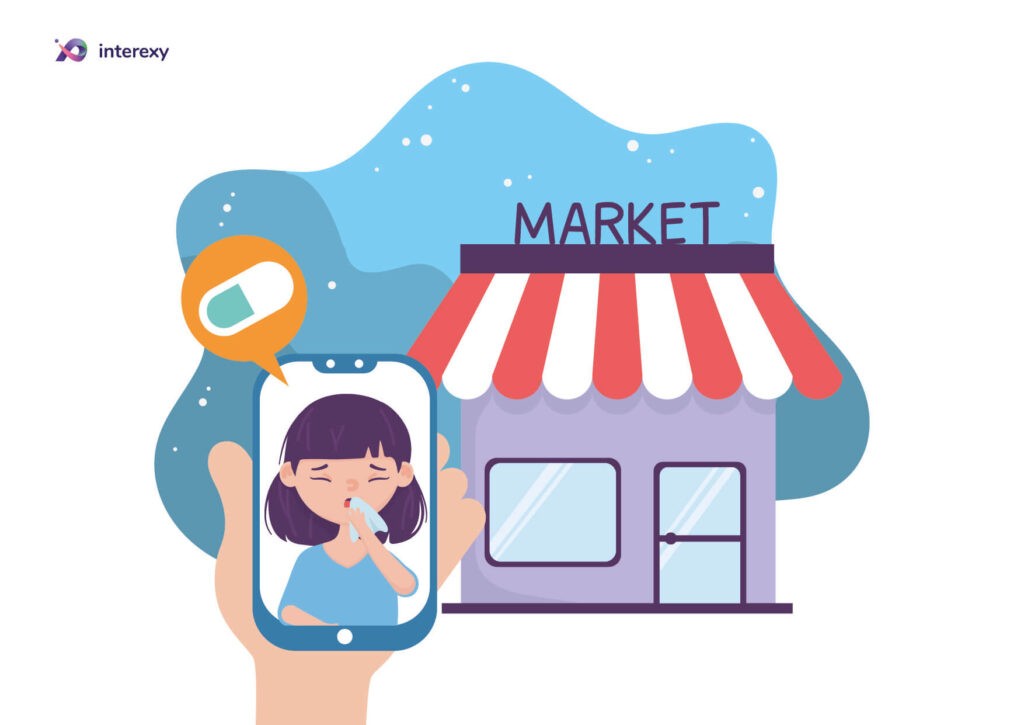
Digital Healthcare Market Overview
According to research, the global digital health market is expected to reach around US$ 551.1 bn by 2027, with a CAGR of 16.5% by the end of 2027.
The global digital health market size was at US$ 181.8 billion last year. Digital health means the utilization of communication via smartphone or information technology-based processes, various tools, and services to provide improved healthcare services. The integration of technology in medicine is said to revolutionize a way to attain higher standards of access to medicine and health services across the world. This sphere primarily works on the electronic health record (EHR), medical data, electronic medical record (EMR), and many others. In addition, the implementation of artificial intelligence and analytics platforms has significantly improved how the health space functions and is expected to continue at the same speed in upcoming years.
When talking about COVID-19, the survey focused on pandemic impact; the healthcare digital sphere grew 50 percent year-over-year by demand for telehealth apps, with downloads surpassing 3.2 billion across mobile medical apps.
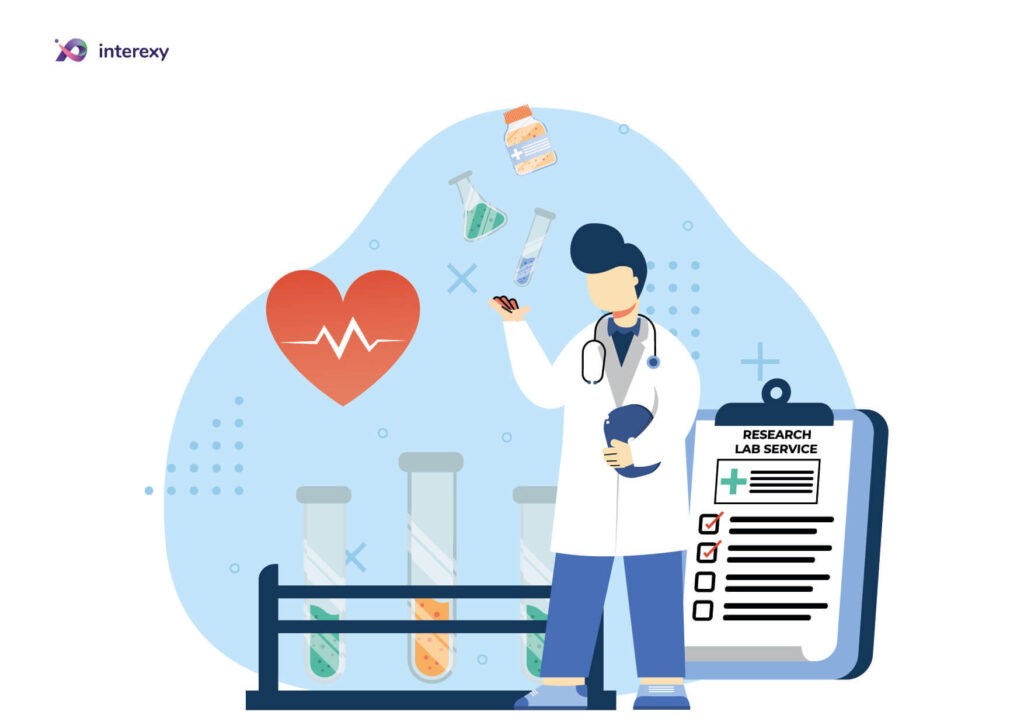
The below graph shows the number of mHealth available at Google Play in 2020.
Although the market reached astonishing numbers, there are still a lot of places and spheres in healthcare that lack professional digital support. Today investors are looking for brand-new applications that can help people with their health conditions worldwide. The structure is constantly changing, allowing for more profitable digital solutions to take the sphere with new implementations that can help create a further step in medicine. Therefore, now is the best time to drive the digital health market on a wide scale.
The Benefits of Mobile Technology Implementation for Healthcare Industry
1. Better accessibility
Unlike inefficient telephone calls to doctors and healthcare organizations, apps are changing how the healthcare industry works. Such implementations allow patients to send secure messages, book appointments and connect to healthcare providers 24/7 for telemedicine visits. Customers reported high satisfaction with the services of our telemedicine app development company as they love the ultimate convenience of conducting a doctor’s visit on their phone or other devices. In addition, now they don’t need to travel all across the city to the doctor’s office or sacrifice their work.
2. Improves medication adherence
After being discharged from the hospital, patients find it tough to control when or how they take their medication. It can result in other health diseases and lead to hospital readmissions with poor outcomes.
Mobile apps focused on medical support improve this by giving clients the following features: automated medication, drug intake reminders, as well as educational information that increase the chance they’ll take their medications properly.
3. Enhances physician efficiency
Since doctors are the backbone of efficient healthcare services, it is always a high-stress job. Especially during the COVID-19 pandemic, almost 60 percent of doctors feel burned out emotionally. They have to spend a lot of time on data entry and many other administrative tasks. Therefore, digital solutions have been integrated to make the medical job less stressful. These applications can help healthcare providers to solve problems faster with less stress.
4. Increases diagnostic accuracy
Today’s technology eases the process of taking patient’s records, which has always been done on paper. This significantly improved the overall diagnostic accuracy. Now healthcare providers and nurses have the opportunity to keep accurate and descriptive notes while applications run automatic checks on prescriptions.
5 ways how mobile apps are transforming the healthcare industry
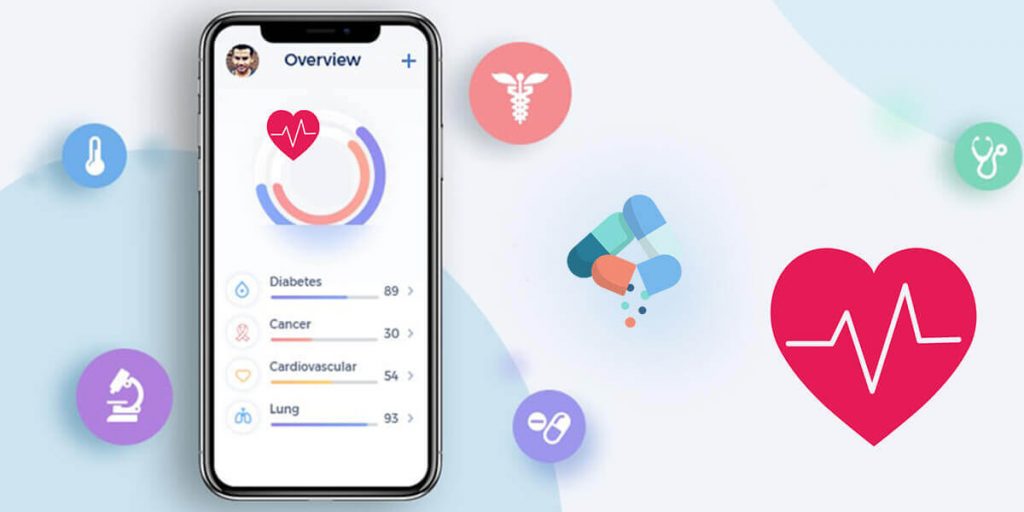
Offer seamless data flow
The healthcare network is complex, with a continuous data flow across all the participants. Also, the hospitals and other risk-taking organizations also need access to the data for accounting purposes. Integration of mobile solutions has made this enormous ecosystem move vital information more efficiently, allowing patients and doctors to work in unison.
Medical practitioners now have more control over the scattering of data, and they do not think about misplaced files and folders. Although some people worry about cybersecurity, the benefits mobile health technology offers significantly outweigh this concern.
Provide direct patient management
For the last 20 years, most doctors have had limited access to their patients and their information. So they did not have the ability to monitor the effect of medicine patients take and send them up-to-date updates directly. This is where mobile app devices come with their focus on changing this dynamic.
Almost every device people may have now can be used to be informed on regular vitals and keep logs on patients. While doctors can check up on the patient directly using a camera on the user’s phone, healthcare organizations can teach family members or caretakers the vitals of a patient treatment plant using direct communication.
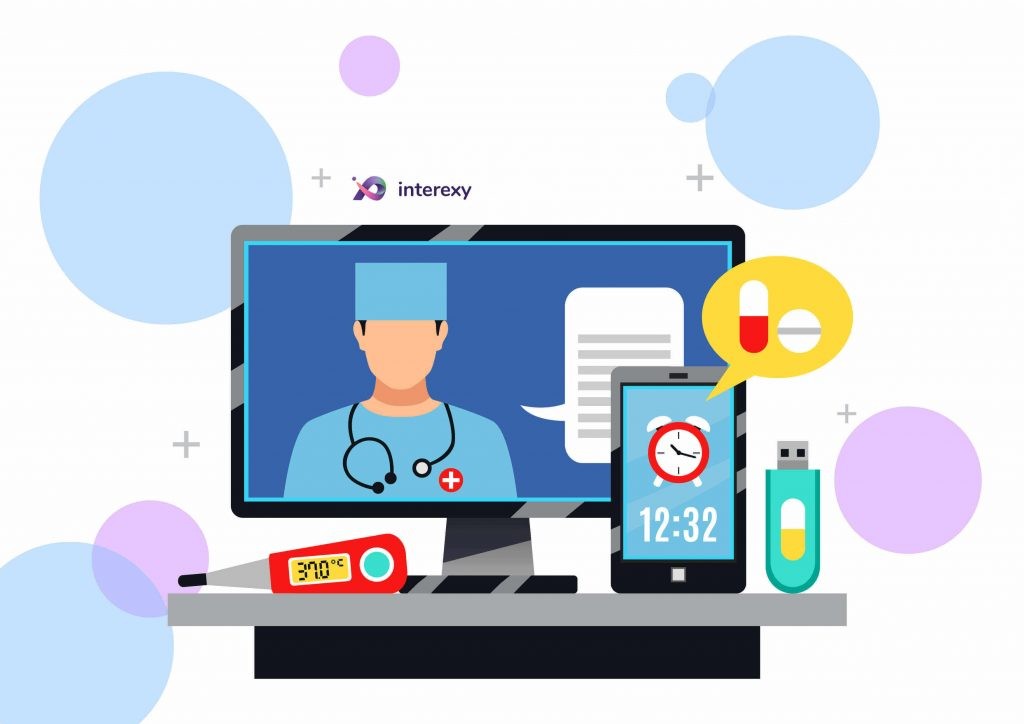
Enables a real-time communication
Another point of how mobile apps are changing the healthcare industry is real-time communication between patients and doctors. Especially when there is a global lockdown, people do not want or can visit their hospital to consult a healthcare provider. This leads to an increased rate of health conditions globally and quickly becomes an urgent problem.
However, the inclusion of mobile apps designed for doctors and patients allows organizations to track patient’s conditions remotely using HD cameras. This real-time communication via video call, for instance, also boosts patient’s loyalty, helps them feel supported, and builds rapport.
Give patients peace of mind
This benefit of how mobile apps are transforming the healthcare industry could not be ignored, as over 67% of patients feel uncomfortable and even unsafe when they do not have updates on their health condition and the progress of their treatment. Mobile technology has opened a channel for them to stay informed on the latest information regarding their health.
Now doctors can leave vital data on their analysis, how medicine works and what they have to expect with their diseases. Open transparency creates a better understanding for patients giving them peace of mind when they are stressed and overwhelmed.
Allows for remote monitoring
The mobile market for the healthcare industry is booming right now, with more and more applications developing to create a new era of medicine. The majority of these digital solutions have a feature that helps doctors in checking medical conditions and monitoring the physical activity of their patients.
For example, the Qualcomm company recently worked with an Arizona healthcare program to allow for monitoring cardiac and pulmonary patients. As a part of the testing procedure, patients wear a device that is connected to their mobile app. The device collects vital biometric data to send this information to their physician and to the mobile app.
We, at Interexy, understand all niche-won questions and are ready to produce the well-thought-out for your business. Reach us out to change the industry!
Technologies That Help Mobile Application Transform the Healthcare and Medical Industry
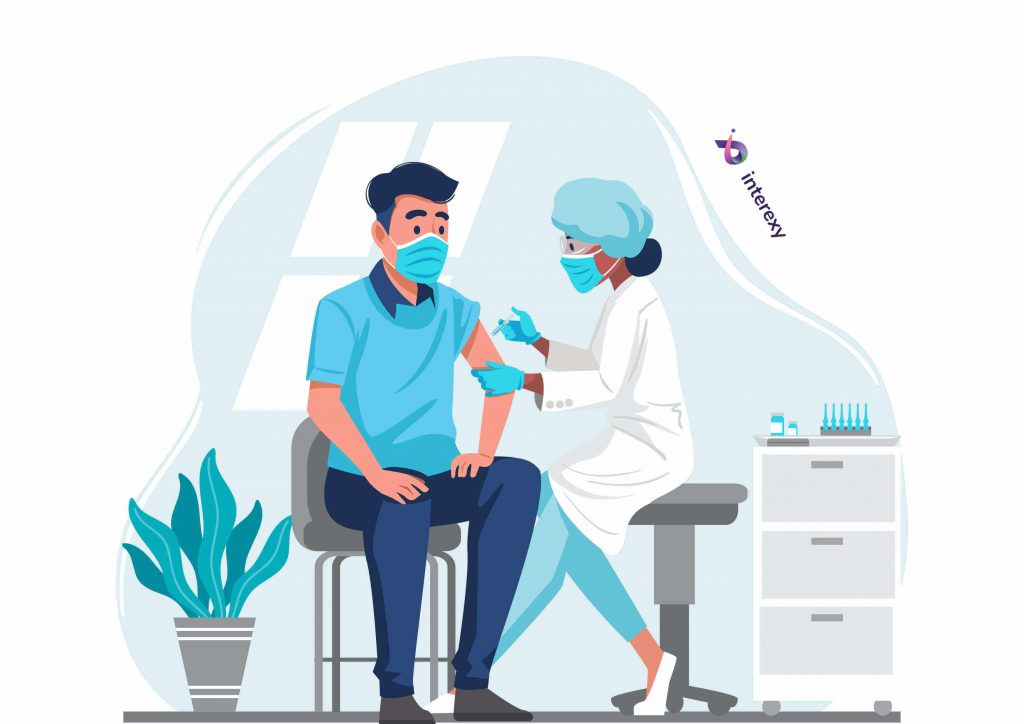
Augmented Reality
If you still do not understand how are health applications transforming the healthcare industry, modern technology gives us access to integrate Augmented Reality (AR) not only for games but for medical purposes as well. This is a great opportunity for doctors to learn training methods and hands-on patient care. This digital integration can display a real-like stimulation, enhancing the chance of successful surgery or formulating of diagnosis.
The Internet of Things (IoT)
Luckily, we now live in a world where everything is about connectivity. The Internet of Things (IoT) has connected all electronic devices, apps, software solutions, and more vital things we use on a daily basis.
The accessibility to IoT in the healthcare ecosystem with specially designed mobile applications opened vital patient information to the medical practitioners. While it is mainly focused on treatment, it also helps keep close monitoring of the patient’s recovery as well.
Blockchain
Although blockchain is a term widely used to talk about cryptocurrency and investments, it also has a huge impact on medicine. For instance, blockchain offers a peer-to-peer database to keep an enormous detailed track record that covers all transactions and allows for better access to a large community.
In medicine, there is always a large history of every patient that should be maintained and be accessible to improve treatment. Blockchain keeps the record virtually, without countless papers, and in an encrypted form. It is not only convenient but also ensures protection from hacking or any possible theft or manipulation.
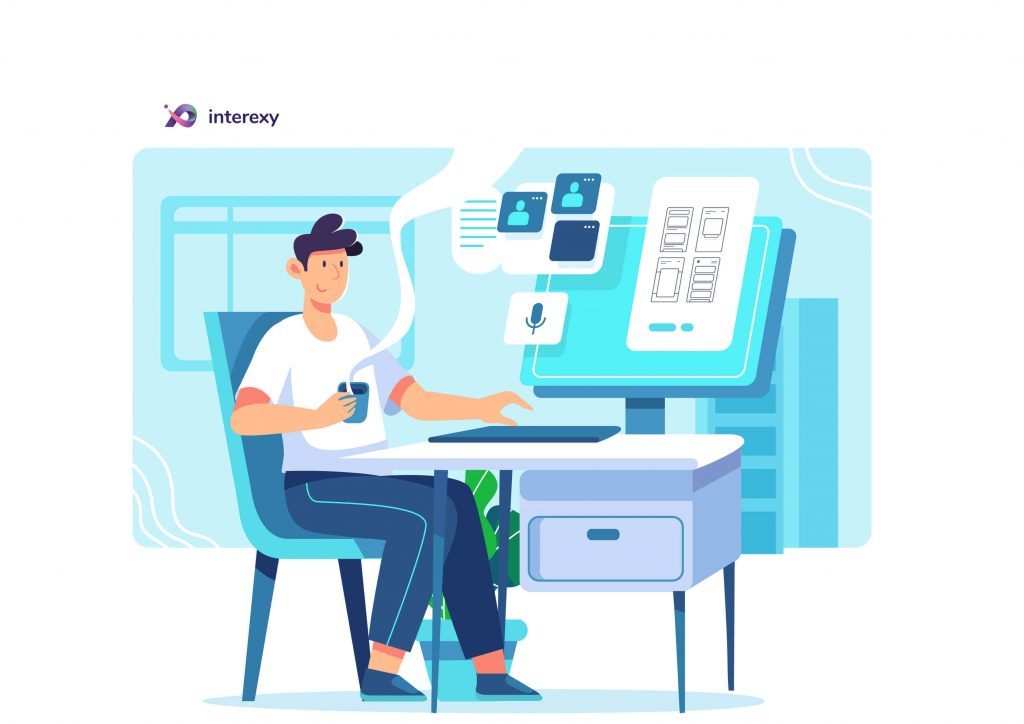
Virtual Reality
With the inclusion of Virtual Reality (VR), physicians can now practice their skills with effective, almost real visualization. VR offers 2D images of the human body, all its vital parts and more things that can be used for improved understanding of severe diseases or formulating a proper treatment according to each patient’s inner structure. Today over 30% of hospitals give their doctors VR to help them practice before surgery, so they can test what works without risking a human’s life.
Consider Interexy Your Trusted Partner
Interexy understands how mobile technology is changing the healthcare industry now, so we don’t want to lose the time and start creating outstanding products to help our customers achieve their business goals.
As a part of our company’s journey in medicine development, we have been a trusted partner for MedKitDoc app founders. They came to us with just an idea and concept in mind and wanted to bring the difference in healthcare with a brand-new application.
We quickly went through the consultation process, outlining the drafts of the solution’s development & proceeding with the full planning stage to finalize the MVP. The main task for our developers was to finalize the scope of functionalities for MVP to maximize the value product will bring to its prospective users, validate market fit as fast as possible & increase the chances of fundraising.
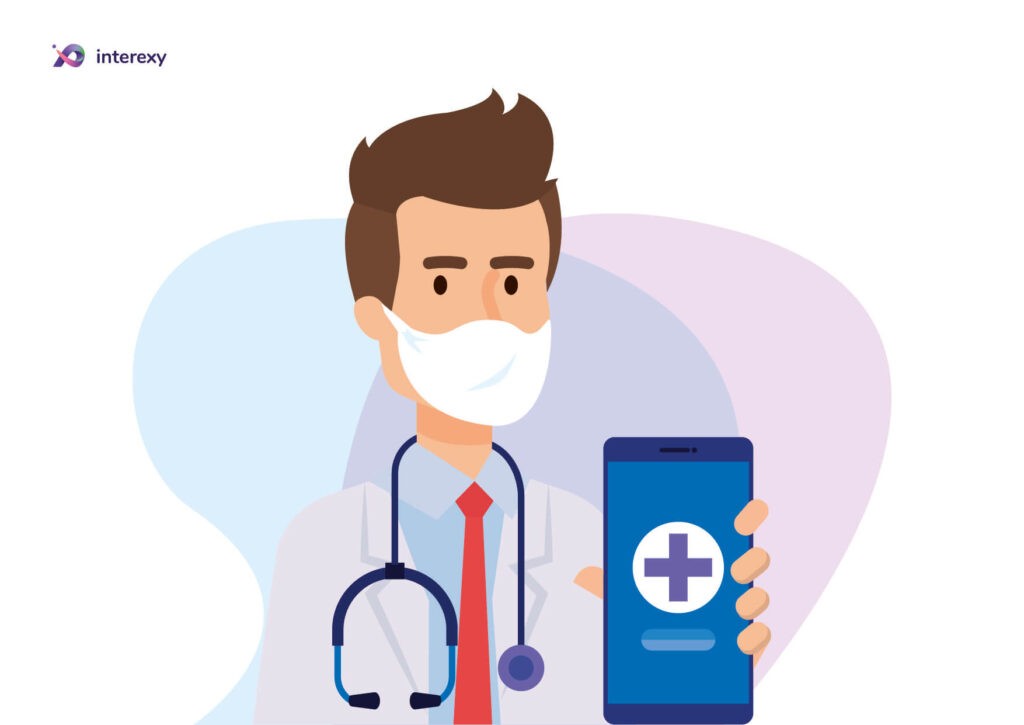
During the development process, we faced a challenge with the design of the app, as most healthcare products available on the market lack simplicity and user-friendly design due to heavily integrated hardware. We knew that the design should be robust & responsive, so our team conducted research on how to make telemedicine app development products successful taking the best UI & UX solutions and implementing them with MedKitDoc, which resulted in an outstanding product.
Since we also knew all the ways healthcare apps are changing the medical industry, we strived to provide a better workflow for both patients and doctors while creating a simple design that can be used by people without misunderstanding. The result was absolutely stunning, reaching 500k euro in only 10 months! Also, numerous happy users left their feedback and were highly pleased to have such a revolutionary app for their wellness goals.
Now you don’t need to wait or look for a team that will be able to realize your dreams from scratch; Interexy is here for any idea you have and ready to start today!
Final thoughts
It’s obvious how mobile apps are changing the healthcare industry, and it can be safely said that the healthcare mobile app is unfoundedly a profitable investment. Therefore, regardless of who you are and what type of business you have now, it would be wise to consider creating a healthcare application or upgrading your business’s functioning. We highly advise you to hire a healthcare mobile application development company to produce an efficient application for you.
